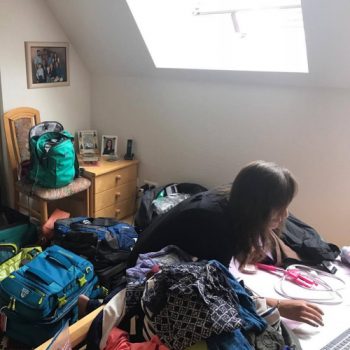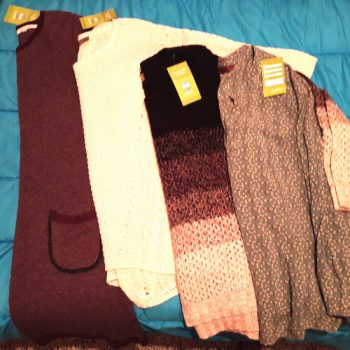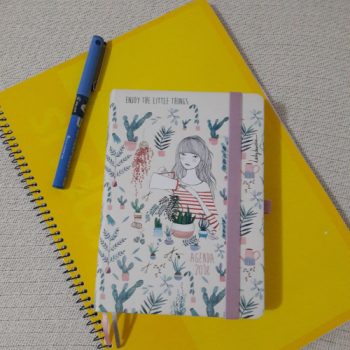
How to: Find Community and Make Friends Online
 Dear Sophia,
Dear Sophia,
Under normal circumstances, one of our top tips for people moving abroad is to immerse in the local community—to engage with the local language, to attend cultural events in your area, and to make local friends. However, we recognize that the availability of all of the above has become incredibly limited in our current, uncertain times.
Whether you are living abroad or not, you may find yourself confined to your home or at least your city. Alternatively, you may live somewhere that isn’t currently observing strict lockdown rules but you may still not feel comfortable attending large events or meeting with strangers. All of this makes suggestions like “attend a language intercambio to meet new people” feel unreasonable. We get it, and we know it can feel isolating if you’ve recently moved to a new country OR you’re stuck somewhere alone and feeling a lack of connection.
Thankfully, in today’s day and age there exists a plethora of interactive platforms where you can meet and engage with people who share similar interests to you. If you’ve been lacking a sense of community in your life lately, this article is for you!
We’re going to walk you through a wide range of options for not only where you can find community online, but also how you can go about creating genuine connections on these platforms—without coming across as desperate or creepy. We hope it helps!
 Where can I find community online?
Where can I find community online?
Instagram: This is currently our favorite place to make friends online as it just vibes well with our style. We love pictures and so, for us, it’s easy to find something to say and therefore to start a conversation in the comments of a photo someone has shared. Likewise, it’s easy to follow hashtags and find friends-of-friends that lead us to more people we can connect with.
Facebook: On the other hand, Facebook offers an opportunity to join groups directly related to our interests, which can be equally valuable. In fact, we find Facebook is a better platform for finding people in our area through groups like “Auxiliares de conversación in Granada,” “Girls Gone International,” “Pet People in Andalucía,” etc. Although we don’t currently feel comfortable meeting up with new people, it’s nice to know that the relationships we’re building online could transfer to offline once the pandemic passes.
Twitch: We’re not personally familiar with Twitch but, from what we understand, it is a more intimate video platform than YouTube. All of the videos on Twitch are live and so video-creators stream and interact with viewers in real time. If you visit the same channel regularly (many Twitchers stream daily or at specific times weekly), you can start to form a connection with the streamer as well as their other followers, resulting in what feels like a standing video-call with friends.
Note: This platform is especially popular for gamers, although alternative content is becoming more popular.
Discord: Like Twitch, Discord is particularly popular in the gaming community but it has expanded exponentially to include people with all sorts of hobbies. The groups on this platform are called “servers” and, while some servers are private and require an invitation, many are public and you can jump right into the conversation. The social conduct on each server varies slightly but some communities, like the writer one Dani participates in, regularly plan events on their “voice channels.” In this way, members can enter the conversation with their microphone and/or video turned on and chat directly.
 Other social media platforms (Twitter, YouTube, Reddit, Tiktok, Clubhouse, etc): As you can imagine, there’s an opportunity to get to know new people on pretty much every social media platform out there so we won’t go into the details of all of them. Simply be aware that each platform has its own benefits and drawbacks. For example, YouTube functions similar to Twitch when a YouTuber livestreams and you can interact with them and other followers in the chat. However, it wasn’t intentionally built as a social media platform so it can be difficult to form connections otherwise.
Other social media platforms (Twitter, YouTube, Reddit, Tiktok, Clubhouse, etc): As you can imagine, there’s an opportunity to get to know new people on pretty much every social media platform out there so we won’t go into the details of all of them. Simply be aware that each platform has its own benefits and drawbacks. For example, YouTube functions similar to Twitch when a YouTuber livestreams and you can interact with them and other followers in the chat. However, it wasn’t intentionally built as a social media platform so it can be difficult to form connections otherwise.
Virtual Events: Outside of social media, we recommend seeking out webinars, virtual conferences, and otherwise online events. Video technology is great these days and, depending on the event you choose to participate in, you could be offered access to an exclusive Discord server, be placed into break-out groups on Zoom to talk directly with others at the event, or anything else in between. For example, Dani’s husband recently participated in Global Game Jam, a weekend video game creation event that would usually take place in physical locations across the world but, this year, went fully online. If you’ve been looking to take a seminar on a certain topic, attend a retreat, or anything of the like, check to see if you can find something similar online!
How do I create real connections and make friends online?
You may be thinking, “this all sounds lovely, but I’ve been on social media for years and it’s not exactly easy to make new friends there—at least not without seeming creepy!” We know what you mean and we felt the same way for a long time. However, the truth is that there are a lot of ways to get to know people online in an authentic and natural way. Here’s what we recommend.
Note: Most of our relationship-building has taken place on Instagram so this advice will lean specifically towards that platform. However, it can be tweaked to work anywhere.
 1.) Follow hashtags (subreddits / servers / etc) related to your interests: Just like in the real world, the people you’re most likely to click with are the people who you share an interest with. There are literally communities out there for everything! Find some hashtags that are active but specific to your interests (be it reading, traveling, knitting, video games, teaching, Spain, pets, whatever) and peruse the current conversation going on in that space.
1.) Follow hashtags (subreddits / servers / etc) related to your interests: Just like in the real world, the people you’re most likely to click with are the people who you share an interest with. There are literally communities out there for everything! Find some hashtags that are active but specific to your interests (be it reading, traveling, knitting, video games, teaching, Spain, pets, whatever) and peruse the current conversation going on in that space.
2.) Interact with some recent posts: People often ask questions in their posts so, especially if there haven’t been many responses, reply with an answer to their question. Whenever possible, make this a few sentences long and include some detail about yourself that is interesting or a question in return to encourage interaction. It may feel strange at first to write a lot in the comments section of an unknown person’s post, but that’s generally the only way you’ll actually get a conversation going.
For example, if Dani recommends a book on her author account and asks for recommendations in that genre in return, a response like “I love this book too!” will likely receive little more than a “like” in return. It’s nice to hear and it’s nice to get the comment, but there’s not much for her to work with in return. On the other hand, a comment like “I love this book too! Have you read Elizabeth Gilbert’s memoir ‘Big Magic’? It’s got a similar vibe and I really enjoyed it!” garners a genuine response which will often lead her to click through to the person’s profile and check out their content as well (encouraging even more conversation if she’s interested in the same topics that the person posts).
3.) Actually share posts of your own: Speaking of which, if you’re looking to find community online, it’s important that you actually do something with your own account. You can always find other people’s content to engage with and start a conversation in that way, but (generally) if they click through to your page and find that you don’t have a profile picture, bio, or any posts, they will be leery about engaging with you.
 When this happens to us, we still happily respond to comments but we don’t feel like we really know the other person (hence we wouldn’t consider them a friend). On the other hand, when we click through to find that a commenter is another expat interested in travel, blogging, or Spain we will follow them back and as such an “open dialogue” of sorts can ensue.
When this happens to us, we still happily respond to comments but we don’t feel like we really know the other person (hence we wouldn’t consider them a friend). On the other hand, when we click through to find that a commenter is another expat interested in travel, blogging, or Spain we will follow them back and as such an “open dialogue” of sorts can ensue.
4.) Engage with challenges / bingos / “chains”: We don’t necessarily recommend “follow chains” as we’ve rarely seen these schemes work out. Plus, even if they do work, they generally result in followers but not engaged new friends. On the other hand, if you see a challenge going around or something like the kind of bingo, two truths and a lie, get-to-know-you templates that we often use in our Instagram stories, join in!
Firstly, this is a great opportunity for people following you to get to know more about you. Secondly, you generally tag others to encourage them to participate, which builds a sense of connection between you. And thirdly, if you use a hashtag when participating in these things, people who aren’t currently following you but who are interested in the topic may find you through the hashtag! Win-win-win!
5.) After a while, you can reach out directly to new friends: We don’t recommend you send a direct message to someone as soon as you find their account as it can come across too strong and make them feel uncomfortable. However, if you’ve already had a few exchanges in public comments, tags, etc and you have something more to say to them, go for it! You’d be surprised how friendly and willing-to-chat most people are.
How should I reach out to new friends directly?
 Keep in mind the same thing we said about comments: say something that warrants a response. A simple “hi” will almost always get ignored and deleted. On the other hand, if you reach out with a sincere, personal message, most people reply. Need some specific tips for this?
Keep in mind the same thing we said about comments: say something that warrants a response. A simple “hi” will almost always get ignored and deleted. On the other hand, if you reach out with a sincere, personal message, most people reply. Need some specific tips for this?
-
Address the person by their name! Especially if this is not inherently obvious from their username but you can find it in their bio or posts, it shows that you’ve put forth an effort to get to know them.
-
Remind them who you are by referencing something you have talked about in comments or seen on their profile. Something along the lines of “I checked out your blog post on __ and really appreciated what you said about __” is a surefire way to get the conversation going as people love to know others actually engage their content.
-
Ask them a question!
-
Be upfront about wanting to be friends. Now, this is a tricky one as, again, coming on too strong too fast can send up red flags. But, something genuine like “It’s so nice to find someone else on here who loves hiking! If you ever need recommendations for trails in Granada, don’t hesitate to reach out” works well.
Of course, not everyone online is looking for new friends so you won’t always receive a response and, even if you do, the conversation may fall flat after a few exchanges. That’s okay! Just like in offline life, you don’t make a connection with every person you meet but it’s really rewarding when a good conversation does unfold and you can start to consider this virtual stranger a new friend.
 That being said, making a new friend is going to be much more successful if you are reaching out to people with small to medium-sized followings. If the person has thousands of followers, they may not be able to keep up with all of their direct messages, but if they have 500 or less it’s more likley they will see your message (and hopefully reply).
That being said, making a new friend is going to be much more successful if you are reaching out to people with small to medium-sized followings. If the person has thousands of followers, they may not be able to keep up with all of their direct messages, but if they have 500 or less it’s more likley they will see your message (and hopefully reply).
We hope this has been a meaningful resource for you and that it empowers you to make new friends and either join a community that already exists or create one of your own! In case you didn’t know, you can find us on Instagram, Facebook, YouTube, Pinterest, and Twitter. If you’re looking to form more of a personal connection, a great place to start is to follow accounts that you enjoy and see who else they are following and interacting with. We bet you’ll find some other amazing people to connect with, just as we have.
Let us know how it goes!
Sincerely,
Spain




